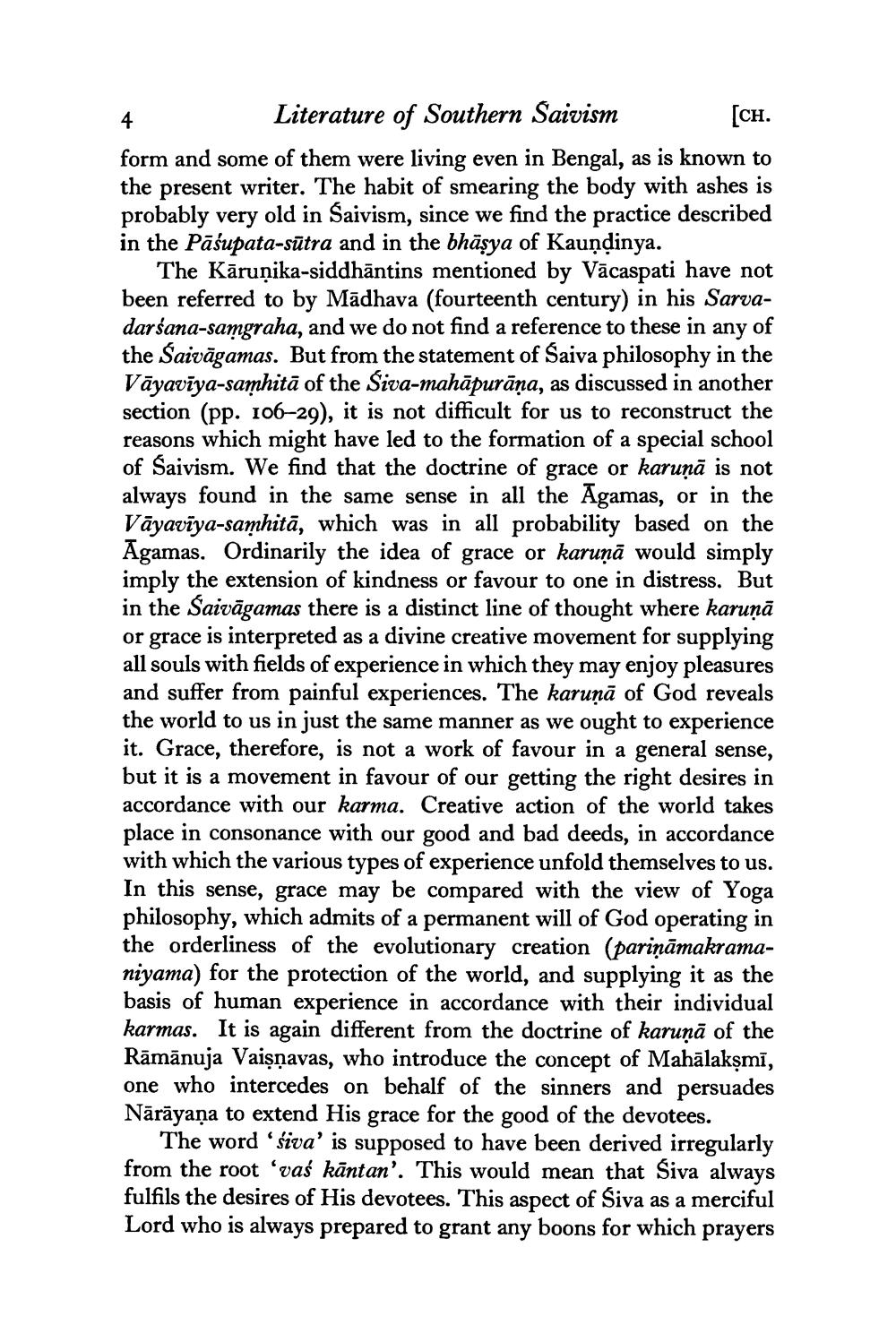________________
Literature of Southern Saivism
[CH. form and some of them were living even in Bengal, as is known to the present writer. The habit of smearing the body with ashes is probably very old in Saivism, since we find the practice described in the Pāśupata-sūtra and in the bhāsya of Kauņdinya.
The Kāruņika-siddhāntins mentioned by Vācaspati have not been referred to by Mādhava (fourteenth century) in his Sarvadarśana-samgraha, and we do not find a reference to these in any of the Saivāgamas. But from the statement of Saiva philosophy in the Vāyaviya-samhitā of the Siva-mahāpurāņa, as discussed in another section (pp. 106–29), it is not difficult for us to reconstruct the reasons which might have led to the formation of a special school of Saivism. We find that the doctrine of grace or karuņā is not always found in the same sense in all the Agamas, or in the Vāyavīya-samhitā, which was in all probability based on the Agamas. Ordinarily the idea of grace or karuņā would simply imply the extension of kindness or favour to one in distress. But in the Saivāgamas there is a distinct line of thought where karunā or grace is interpreted as a divine creative movement for supplying all souls with fields of experience in which they may enjoy pleasures and suffer from painful experiences. The karuņā of God reveals the world to us in just the same manner as we ought to experience it. Grace, therefore, is not a work of favour in a general sense, but it is a movement in favour of our getting the right desires in accordance with our karma. Creative action of the world takes place in consonance with our good and bad deeds, in accordance with which the various types of experience unfold themselves to us. In this sense, grace may be compared with the view of Yoga philosophy, which admits of a permanent will of God operating in the orderliness of the evolutionary creation (pariņāmakramaniyama) for the protection of the world, and supplying it as the basis of human experience in accordance with their individual karmas. It is again different from the doctrine of karuņā of the Rāmānuja Vaisnavas, who introduce the concept of Mahālakṣmī, one who intercedes on behalf of the sinners and persuades Nārāyaṇa to extend His grace for the good of the devotees.
The word 'śiva' is supposed to have been derived irregularly from the root 'vaš kāntan'. This would mean that Siva always fulfils the desires of His devotees. This aspect of Siva as a merciful Lord who is always prepared to grant any boons for which prayers




